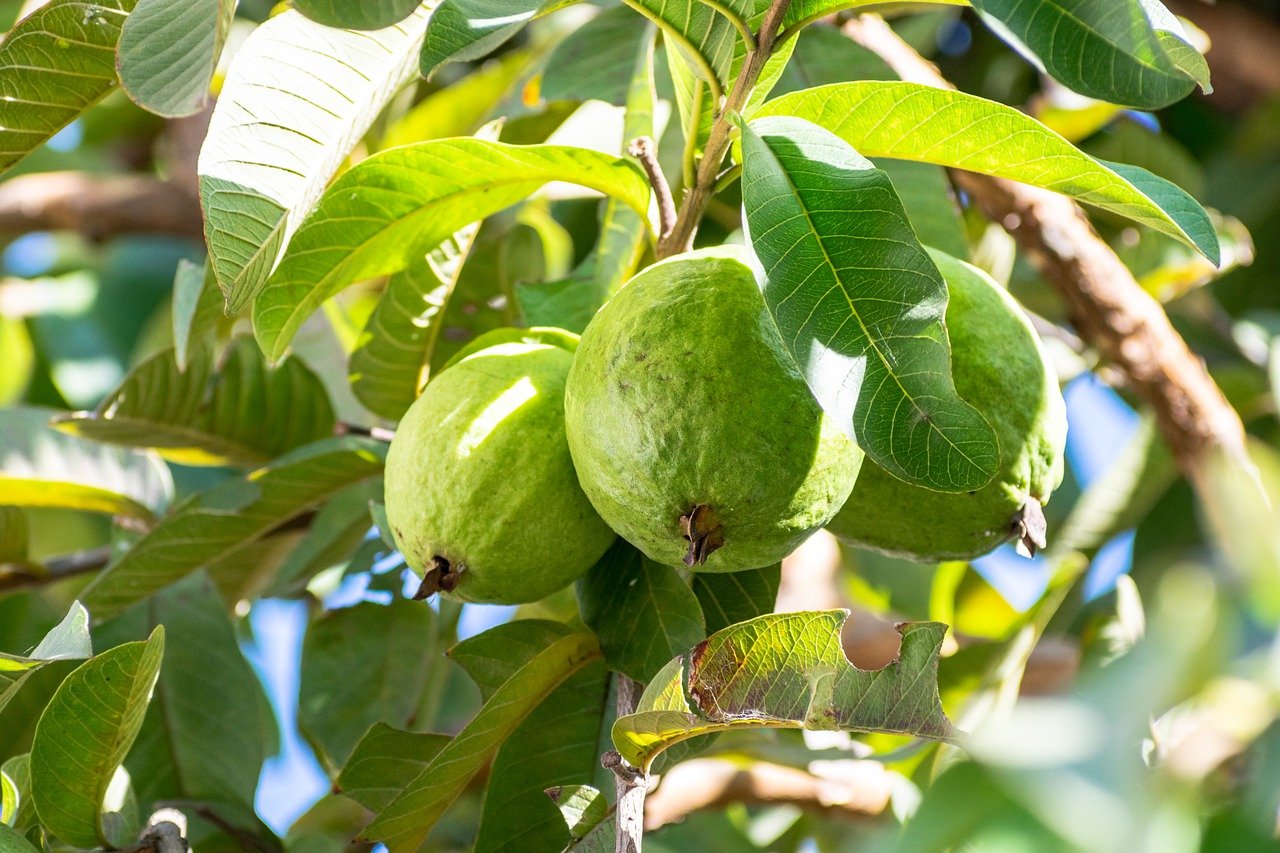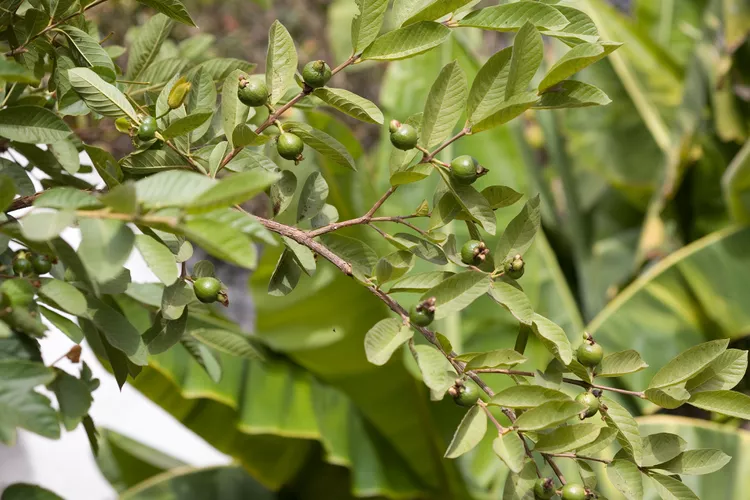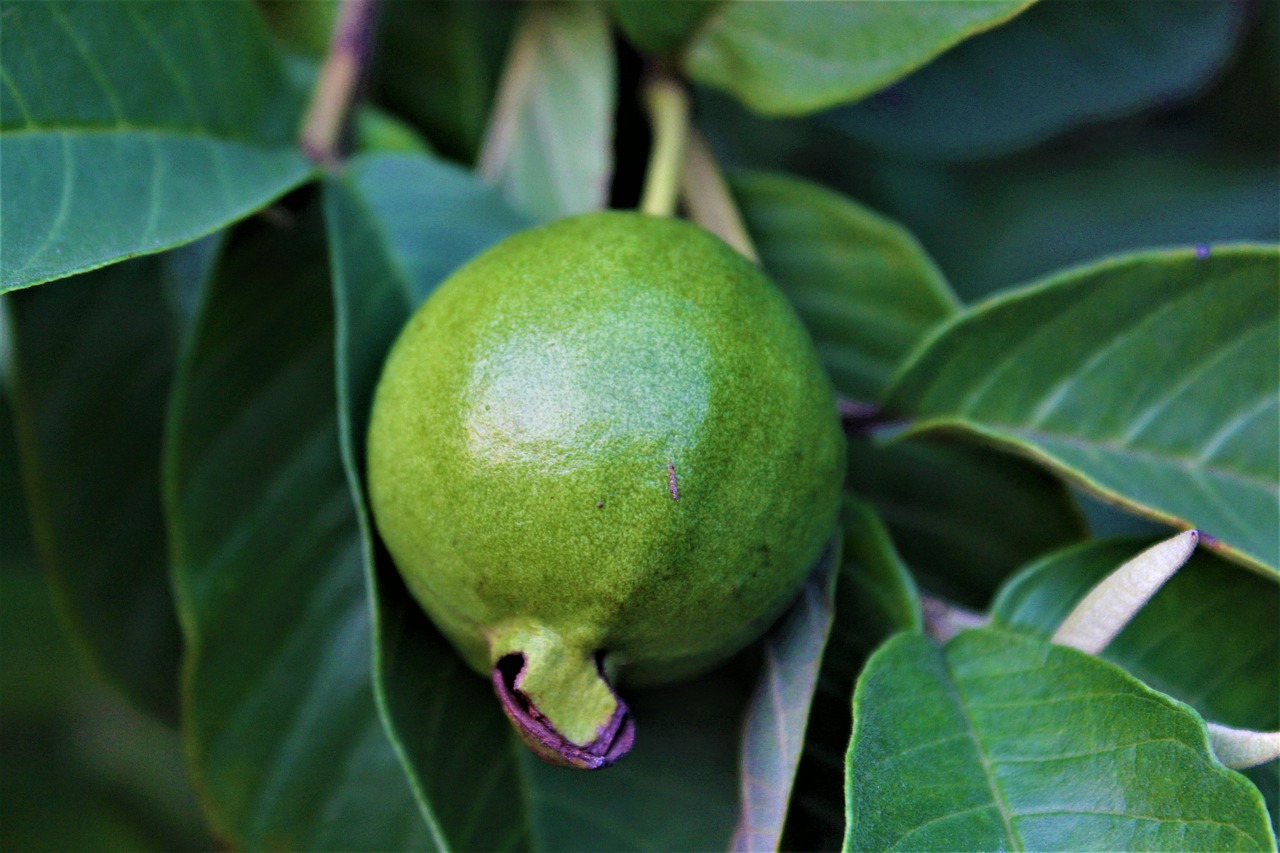Guava Trees
Guava trees, native to tropical climates, can thrive indoors. If you’re a guava enthusiast, consider growing your tree. Guava trees struggle in cold and windy conditions. This guide will help you understand how to develop a guava tree in a hot and humid climate.
Planting Guava Trees
Plant guava trees in summer. If you’re growing the tree indoors or moving it indoors during colder months, ensure it gets full sunlight. For fruit production, you’ll need another tree for pollination. You can grow it indoors anytime, provided you fulfill its basic needs.

Caring for Your Guava Tree
Guava trees need the right conditions—ample sun, and a warm, humid climate without exposure to cold or frost. If your area experiences cold spells, consider planting the guava in a large pot that you can move indoors during colder months.

Light and Soil Requirements
Plant guava trees in full sun to ensure abundant flowering, which leads to fruit. These trees need at least six hours of direct sunlight daily. Guava trees adapt to most soil types but prefer soil rich in organic matter with a pH of 5-7.
Watering and Temperature Needs
Initially, water a guava tree every other day for a week, then once or twice a week during the growing season. Reduce watering in winter due to cooler temperatures. Guavas thrive in temperatures ranging from 65-90°F.
Fertilizing and Pruning
Fertilize the tree every few months. Once established, quarterly fertilization is usually enough. Pruning is necessary for a healthy guava tree. Use sterilized pruning shears to cut back any diseased or damaged branches.
Dealing with Pests
Several pests, including fruit flies, whiteflies, and mealybugs, can infest this tree. Regularly check the tree and leaves to prevent an infestation. Neem oil or insecticidal soap can help control stubborn infestations.

Harvesting Guavas
Guava trees start bearing fruit a few years after planting. The fruits are oval-shaped and vary in size. The green skin turns yellowish as the fruit ripens. You can harvest guavas when the skin feels slightly soft under light pressure.
Propagating Guava Trees
You can easily propagate guava trees by seeds. Soak the seeds from the fruit in warm water for at least 24 hours before planting them in moist soil. Another option is to take cuttings from branches, though this method requires more effort, time, and know-how.


